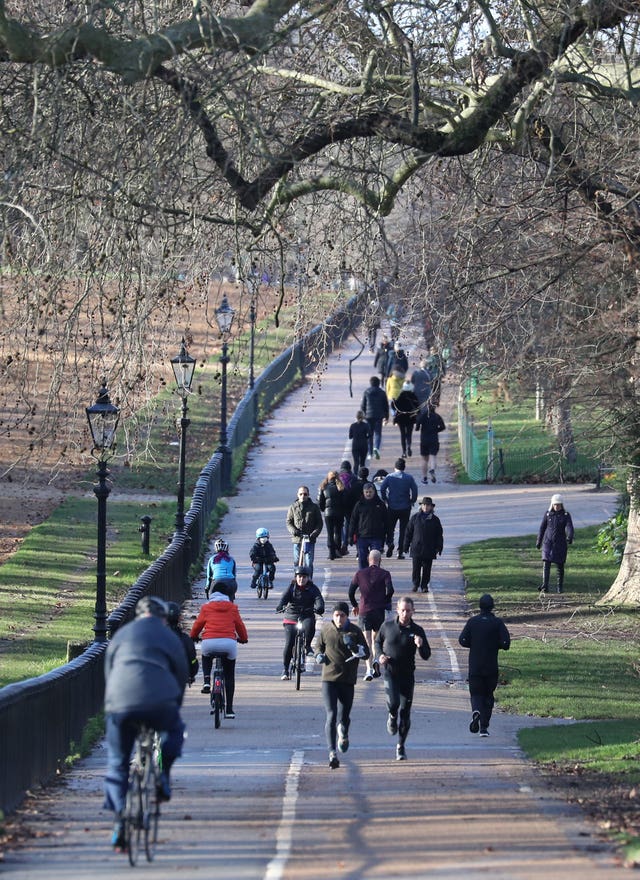A year of hundreds of coronavirus laws curbing freedoms like never before
Court cases were reviewed after it emerged errors had led to wrongful coronavirus prosecutions.

Hundreds of coronavirus laws have been brought into force in the last year, amounting to some of the most sweeping powers curtailing freedoms in peacetime history.
Rules on why people could leave their house, what they could do, where they could go and who they could see while being bound by orders on wearing face masks, limits on numbers and curfews all seemed almost impossible to imagine just 12 months previously.
The tough lockdown laws and the confusion some of them caused – particularly when there was a mismatch between the legislation and government guidance – prompted some of the most surreal debates ever conceived on things like whether certain eating habits and leisure activities were allowed.
During the coronavirus pandemic:
– Ministers agonised over whether a scotch egg should be classed as a “substantial meal” in order to satisfy being able to drink alcohol in a pub.
– A chief constable backtracked after mistakenly threatening to check shoppers’ supermarket trolleys if people did not start adhering to lockdown laws.
– Debates raged over what distance from the home constituted “staying local”, as well as how long and how regularly you could go out for exercise.
– Police were told people who sit on park benches for too long were likely to be breaking the rules.
– Court cases were reviewed after it emerged errors had led to wrongful coronavirus prosecutions.
– Overzealous officials came under fire after the public was whipped into a mini-frenzy over fears they could be banned from buying Easter eggs because they were not an “essential” food item.

Human rights barrister Adam Wagner, who has been charting lockdown laws and deciphering the complicated legal documents for the public on Twitter, told the PA news agency: “It is unprecedented to think we have had laws like this and have seen law-making like this over the last year.
“We have had fundamentally important criminal laws being passed by ministers in the middle of the night.”
In the past Mr Wagner has been critical of the way emergency laws were introduced, particularly over how documents setting out the rules were often made public sometimes within minutes of them coming into force late at night and how some were “strewn” with errors because of the rushed nature in which they were being put together.
This is problematic, he says, because it makes impossible for the public to understand and abide by them and for the police to properly and fairly enforce them.
“I think the country has not been very well served in the way it was done”, he added, fearing it has caused the public to lose respect for the law and Parliament and ultimately that the way they were handled made them “bad laws”.
In the past he has suggested decisions on whether certain events could go ahead during the pandemic were down to Government “priorities”, adding that it can change lockdown rules “with the swish of a minister’s pen”.
For example, exceptions were made to allow “outdoor commemorations of unlimited sizes” for Remembrance Sunday and Armistice Day and for grouse shooting but Mr Wagner questioned why clarity was not given over whether socially distanced protests and vigils were permitted.
The Government has laid some 300 coronavirus-related statutory instruments – legislation which allows rules to be brought into force without a new Act being passed – before UK Parliament in the last year, according to research by the Hansard Society.
This is an average of around seven a week since March last year.
At least 69 have been regulations for lockdown rules in England.





